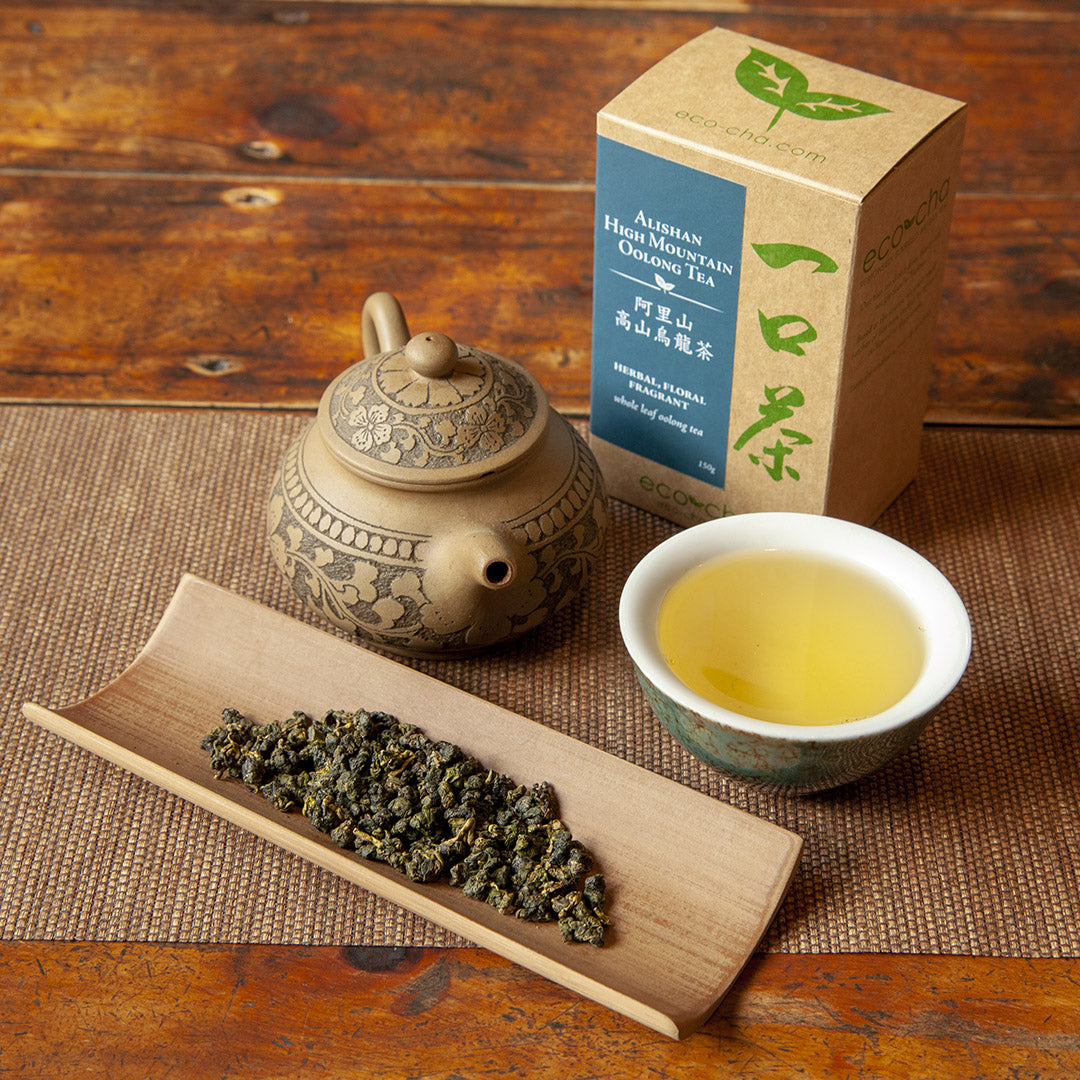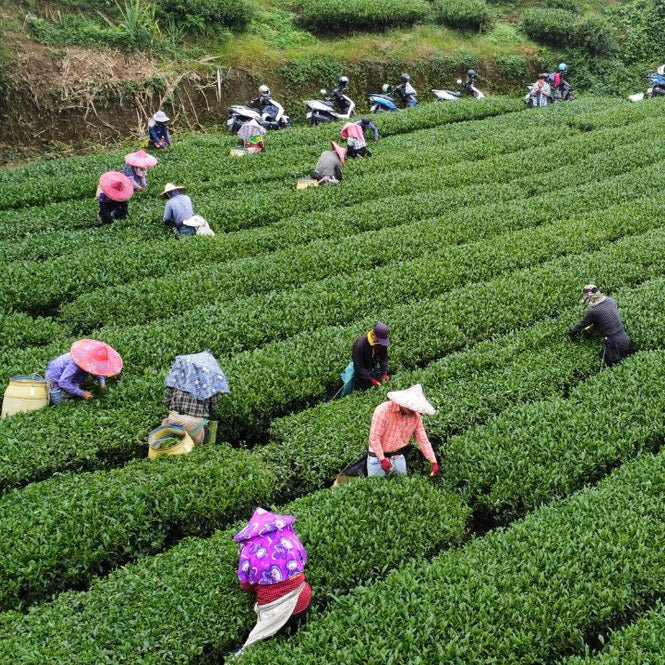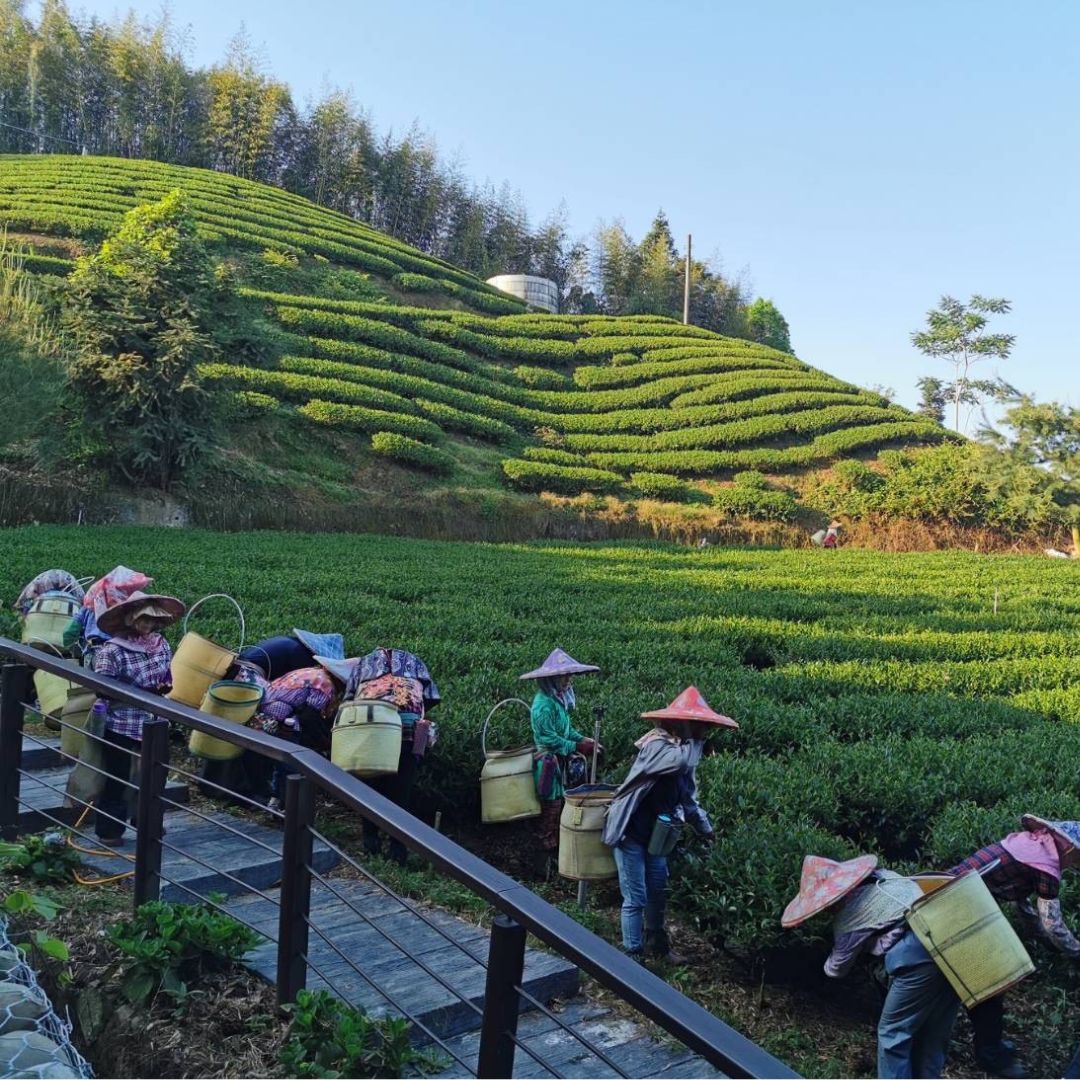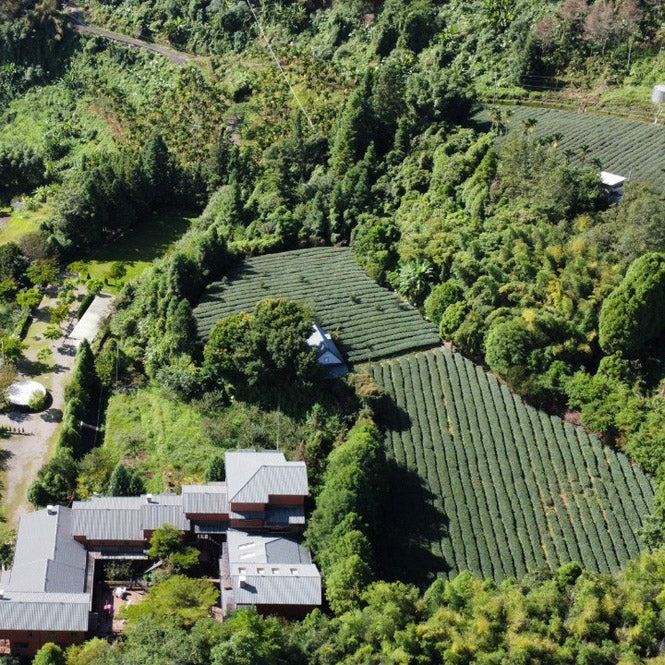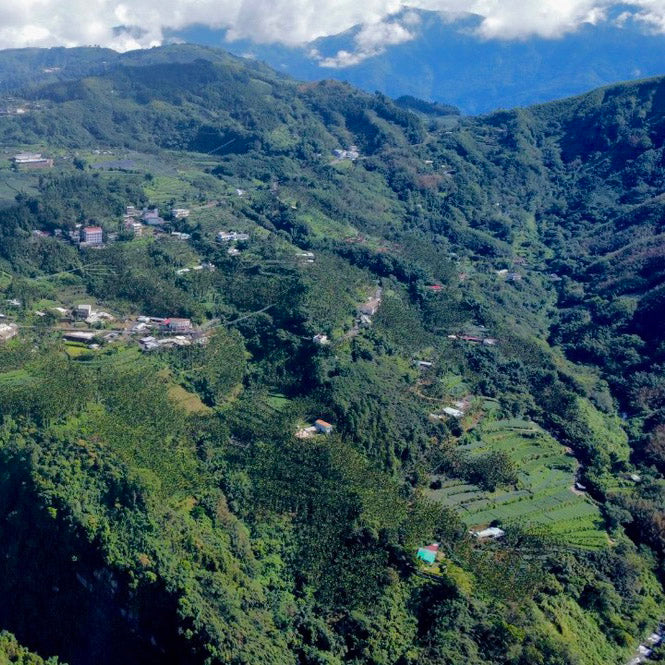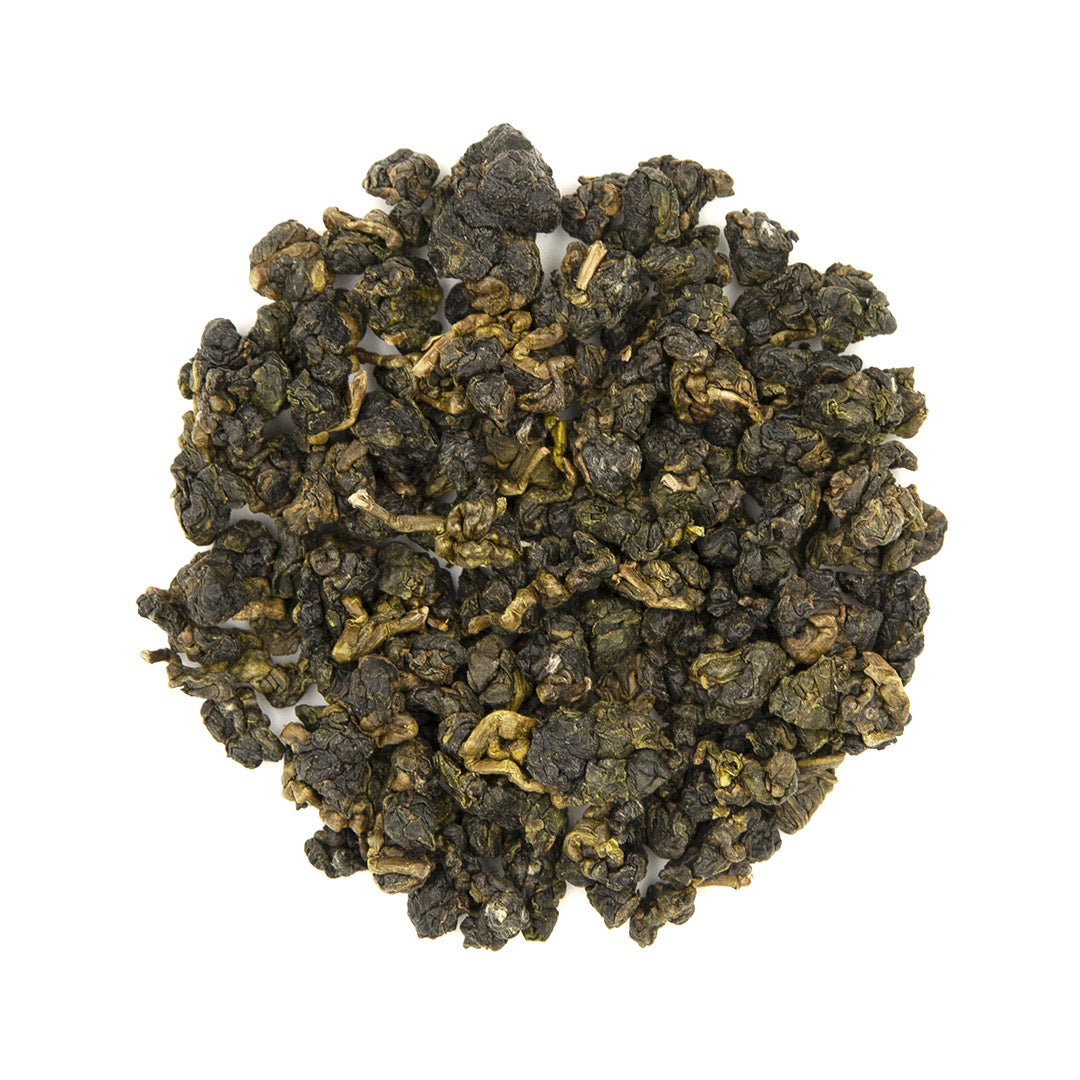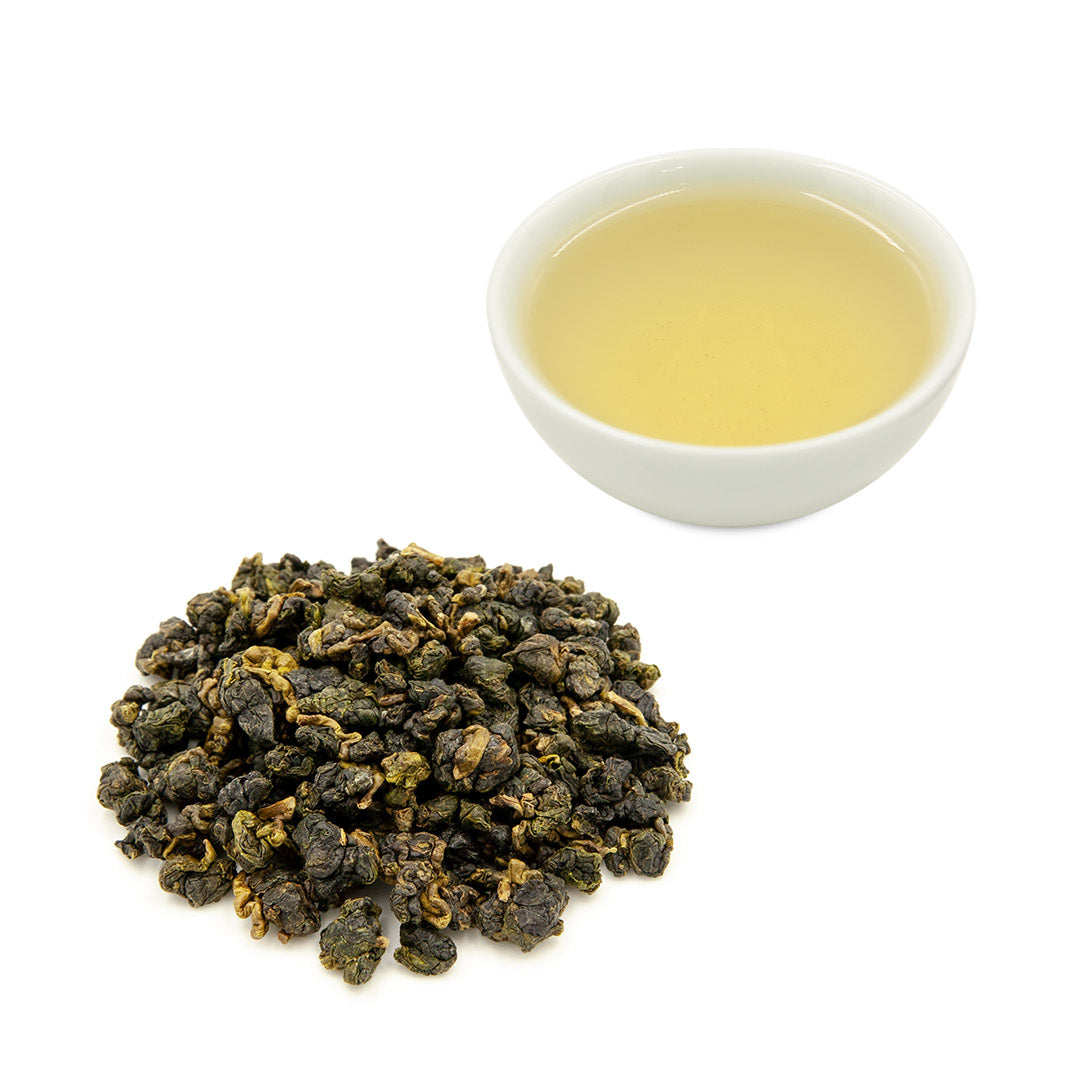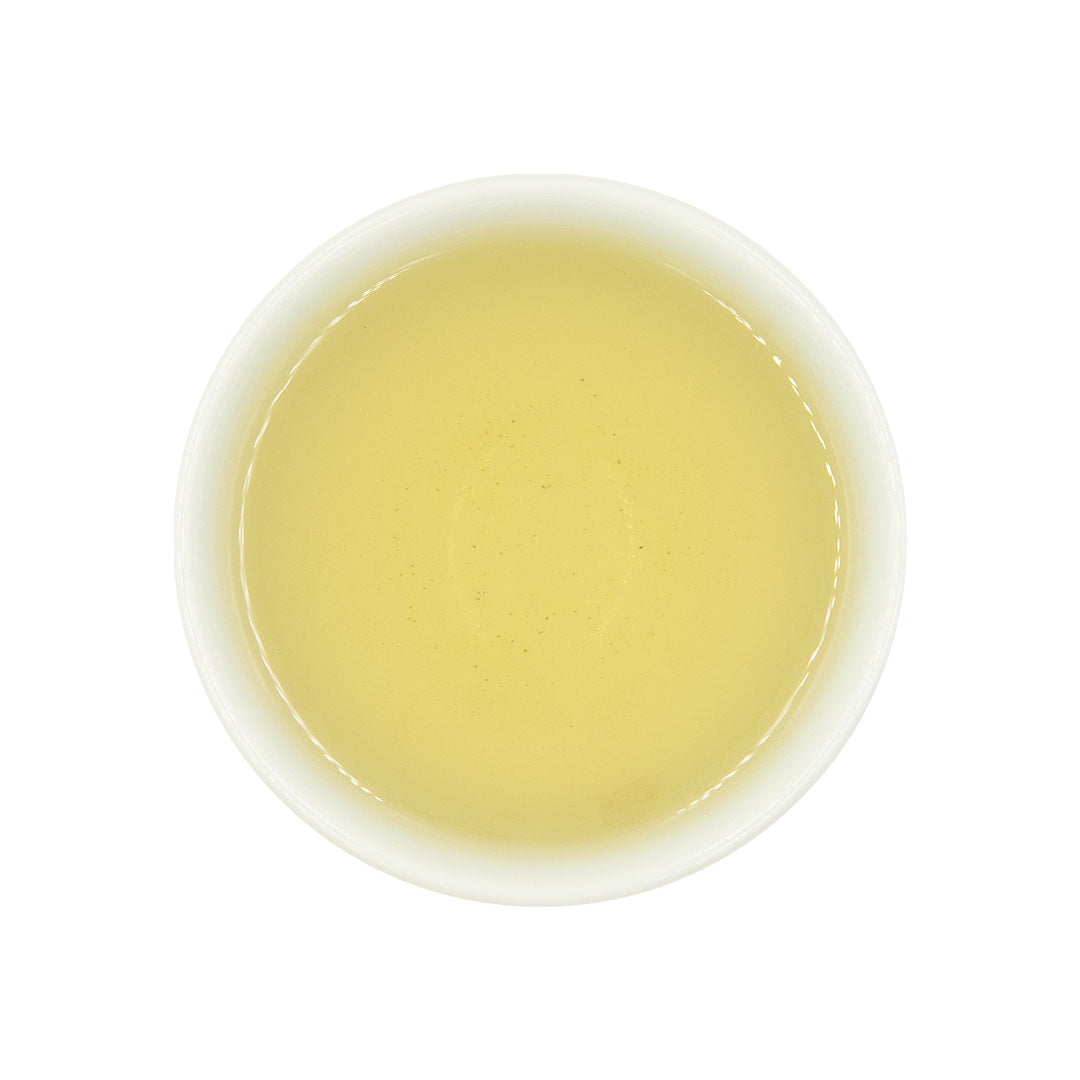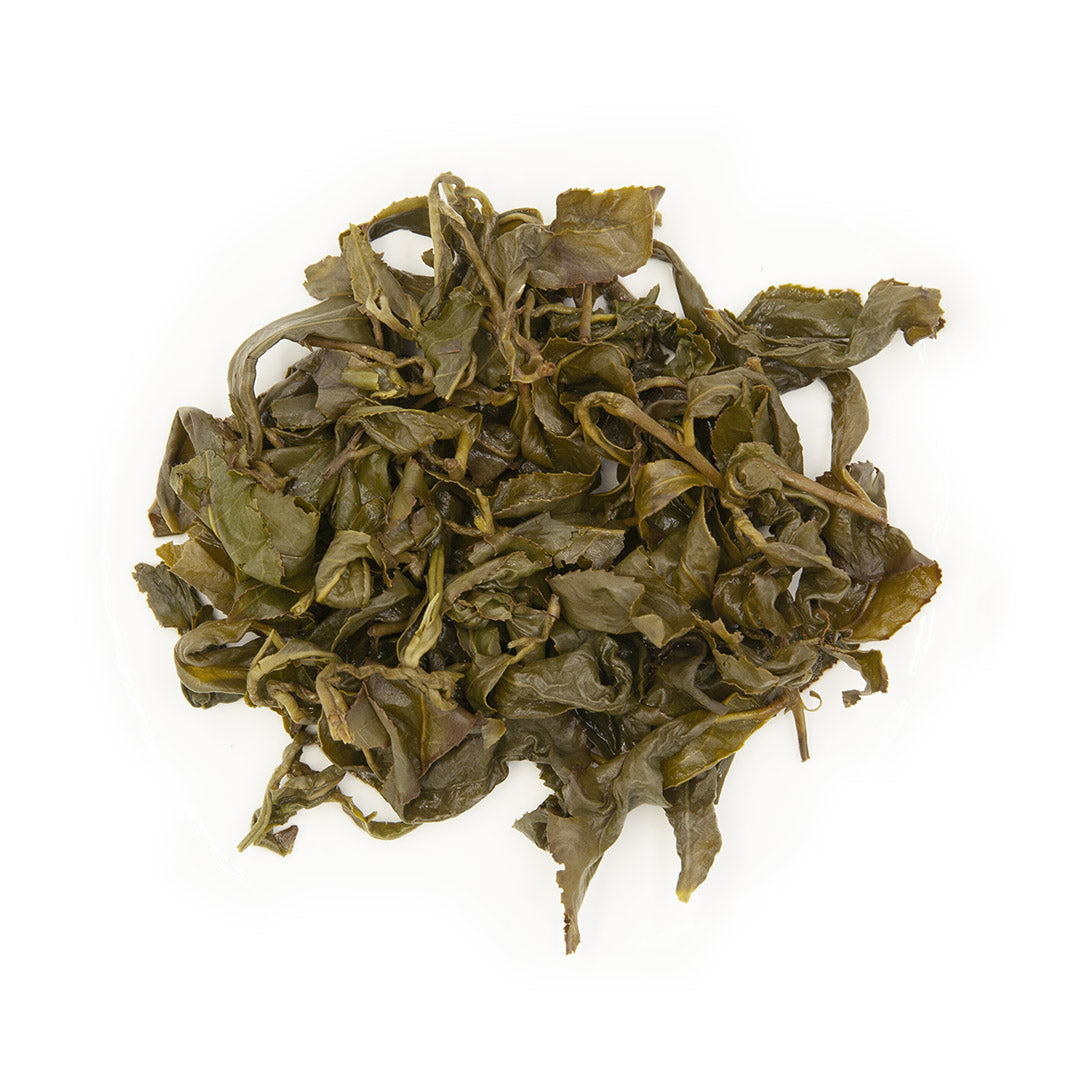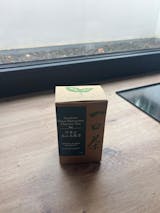Alishan High Mountain Oolong Tea
US$6
Please select all options.
-
Flavor: Soft, flowery aroma. Sweet, delicate pastry, floral, and herbal notes. Clean, lingering finish.
Garden: This plot of Qing Xin Oolong situated at 1100m elevation in Zhangshuhu Village, Meishan Township . Zhangshuhu is the northernmost corner of the Alishan tea growing region, and has become one the most popular names for Alishan High Mountain Tea. Our batch was picked on 11/18/2025 — the very last day of winter harvest!
Harvest: Hand-picked, Zhangshuhu, Taiwan. Winter 2025.
Elevation: 1100m
- Our assessment skills were put to the test in procuring this batch of tea, as we had to decided whether to buy it or not before it was finished being cured! We had told the boss lady of the factory that we were not in the habit of doing so, because there is still a potential margin of error before the tea is completely rolled and dried. She concurred, but said that the margin is relatively small in her factory, and that they are diligent about avoiding this mistake. The decisive factor was when we tasted the brew from the 85% cured leaves. It was amazingly fragrant, substantial, and represented the winter tea character that has become rare in recent decades due to climate change. In a word, we were sold! This batch offers a delicate, complex floral/herbal aromatic and flavoer profile with a deeper subtle quality that is simply referred to locally as "winter tea flavor".
-
We procured this batch of tea from a factory that is in high demand among wholesale merchants in the local industry. Merchants come to the factory to taste the previous day's harvest that is still being rolled and dried, and purchase large quantities of fresh produce before it fully cured!
Zhangshuhu is a narrow valley — more like a ravine, in the northernmost section of the Alishan High Mountain Tea growing region. We originally sourced our Alishan High Mountain Oolong in this valley 20 years ago. We have been introduced to a new source here that has brought us back with renewed interest!
We finally had a chance to visit this factory that we had been introduced to a while ago. It is run by a former school teacher who is quite active in developing and promoting the local tea culture. Many local farmers have their seasonal produce cured at this factory, and she represents them and facilitates the sale of their tea to merchants who come from all over Taiwan. Ms. Yang has a solid business ethic, and is all about sustainable business practice. After a couple of visits comprised of long rambling conversations about all things tea, we are very much looking forward to future cooperation!
-
Mug: 8g tea in 300ml 100°C water. Steep for 4 minutes. Re-steep. Adjust to taste.
Cold Brew: Use 5g of tea per liter of water. Brew tea at room temperature for 2-3 hours, and enjoy. Or you can put your cold brew bottle in the fridge to brew overnight and be ready to drink the next day.
Gong Fu: Start with a 1:15 ration of leaves to water (10g tea leaves for 150mL water) and adjust to preference. Use boiling temperature water and brew for about 50 seconds. Increase brewing time with each successive brew. The leaves can be brewed 6 times.
A pretty good tea. It's super clean, refined, and flavorful. Lightly vegetal and floral with excellent aroma.
While I'm more partial to more oxidized oolongs, this is a great option for those days where I crave something lighter
I’ve tried several batches of the Alishan High Mountain Oolong Tea over time, and it’s never been a disappointment. Every time, it’s well-balanced, fresh, and full of aroma. It’s become my daily go-to tea — easy to enjoy and always satisfying. For me, it’s one of the most reliable Oolongs in Eco-Cha’s lineup.
After trying the Alishan High Mountain Jin Xuan version I had expectations to some degree but it blew them all out of the water. As soon as I opened the bag a stong green aroma hits your senses in the most wonderful way, I kept smelling the dry tea for while before finally settling on actually brewing it.
I went with the gonfu style brewing, 4 grams tea, 60 mL water, 100 C, 30 sec steep with no rinse.
Not rinsing this tea is right way to go cause that first steep was already aromatic and full of flavor. This is like Jin Xuan on steroids, jasmine and the vegatal note are pronounced strongly.
From 2nd to 5th steep flavor is constantly strong with a numbing jasmine flavor left on the palate, and I didn't even prolonged the steeping time, went with 30 seconds for the first 4 steeps and 45 seconds for the 5th. Compared to Jin Xuan one this had less dryness.
I tried doubling the water for the 6th steep just to see how it holds and it was still wonderful, flavors were a bit more gentle maybe, but I was still able to get 2 more steeps out of it.
PIus, I could probably throw it into hot water and let it sit overnight to squeeze the last good bits if I wanted.
I'm still not over how great this is, albeit I have little experience to compare this to yet this tea packs so much punch with so little that I'm sure adding this to your stash will make you happy.
The winter 2024 Alishan Gao Shan Cha was very good. Creamy, buttery and slightly fruity (peach). It perfectly represents Taiwans most famous tea growing area.
It’s amazing. Sweet, floral, light, makes me think of morning dew and foggy waterfalls. The moment the tea touches my lips I can’t help but get pulled immediately into the presence where the taste and sensations the tea create collide, simultaneously filling me with tranquility and energy. I can make no guarantees as to what you’ll experience when you drink it, others I’ve shared it with seemed like it wasn’t that impressive, it is a more mild tea… I will say I do not drink sugary beverages, so I’m very able to pick up the sweet notes. But to me, to my tastes, this is straight up magic in a cup. Not just because of how they go from tiny little pearls to a full gaiwan packed with leaves (with full stems that have like, structure to them and it’s mind boggling that they managed to get that small and then that big again. It’s sorcery) but the flavor of the tea, and its ability to force me into presence with every sip… it’s worth every penny and probably more.
And while I do it for every tea session I have, mentally thanking and sending well wishes to the people whose work has brought this magic into my hands, I do it with every single pour of this tea from my gaiwan. Every time I smell the lid, I’m filled with gratitude. Thank you for giving us the opportunity to buy this tea, and thanks to everyone who participated in its creation.


